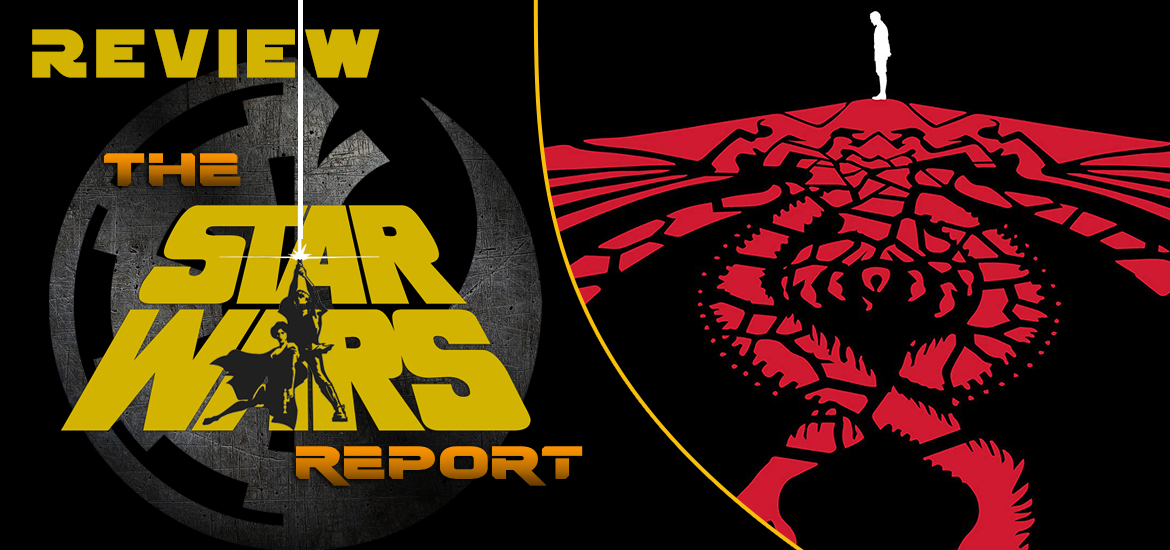In 1991, author Timothy Zahn created one of the most memorable Star Wars villains of all time in Heir to the Empire. Since that time, Thrawn has been made canon through the Star Wars Rebels television show and Zahn has been able to expand on our knowledge of the character through two new trilogies of books. Now, the Thrawn Ascendancy trilogy reaches its epic conclusion with Lesser Evil.
The Thrawn Ascendancy trilogy has given readers one of the deepest studies of a Star Wars culture ever. Zahn has been able to expound on reader’s understanding of the Chiss in incredible ways and Lesser Evil adds even more. Reader’s will finally get the deep history of the Chiss Ascendancy, as well as the personal history of Thrawn himself. The amount of detail this race now has makes it the deepest and richest of all the Star Wars cultures.
Thrawn as a character has often been derided by some for being too “all knowing”, yet Zahn fully digs into his character in Lesser Evil to explain just what makes him special. Thrawn looks at facts as they are, not through any lens or ideology and because of this he is able to see things for what they are, not what he wants them to be. There is a fantastic conversation in the book that Thrawn has with Thalias that helps explain his reasoning,
“‘I don’t teach, but merely guide. Each person approaches problems differently. All I do is ask questions that set that person on their best path to the solution.’ ‘I see’, Thalias muttered. But only if that person was willing to put forth the effort to learn that path to logic and reason she suspected. Too many people, possibly even the majority of them, were all too content to let others do that thinking and analysis for them.”
It is Thrawn’s ability to put in the work of logical analysis, without preconceived notions that sets him apart. Later in the book Thrawn complains, “I’m was disappointed. People who can’t see things that are right in front of them…”. He is frustrated with people’s inability to objectively look at the facts and see what he sees.
This is why Thrawn can look at a piece of art and understand so much about a culture. He comes to that piece of art the same way he does to a conversation, to learn what is actually being said, not what he thinks is being said. Art is always saying something, the creator or author has something to share with their audience and Thrawn looks for the intent of that creator, not his interpretation. Because Thrawn is not looking at things through any certain lens, he’s able to parse what the artist is trying to say. And because an artist is a product of a culture, Thrawn can deduct from that artist much about the culture that produced the artist.
This theme of thinking for one’s self is further driven home through the addition of the Kilji, a race who claim to be enlightened. This enlightenment is seldom at the individual’s choice, often being forced on whole cultures by the Kilji. The leader of the Kilji illuminates their philosophy further, “All beings secretly dream of having someone to give them order and purpose, who will allow them to serve without the need for burdensome thought or uncertain decision. That is the enlightenment we offer.”
This idea is the ultimate extreme but it serves the point on how critical thought can be eroded when one stops approaching things from as clean a slate as possible, as Thrawn models. When politics clouds everything, when ideologies become all, clarity becomes obfuscated. This is what makes Thrawn special, he’s only bound to his desire to protect his people, that’s it, all else for him is open. This allows him to be able to truly listen to what is being said through art and conversation and see what’s right in front of him.
It cannot be overstated just how detailed this series has been in its plotting. Every single page is full of things that continually add to what is going on and therefore must be read with care. This makes the Thrawn Ascendancy series one of the best of all of Star Wars literature. Zahn put his heart and soul into this series, Lesser Evil is no exception. There is so much more that could be written about in this review but the book’s revelations are best experienced by reading the story for one’s self. Lesser Evil is rated 5 out of 5 stars.
This review was completed using a copy of Lesser Evil provided by Del Rey Press.
Author: Matt Rushing
Matthew Rushing is the host of Trek.fm‘s The 602 Club and co-host of TheNerdParty.com‘s AggressiveNegotiations: A Star Wars Podcast. He can be found on Twitter @mattrushing02.

[…] This review originally appeared on The Star Wars Report. […]